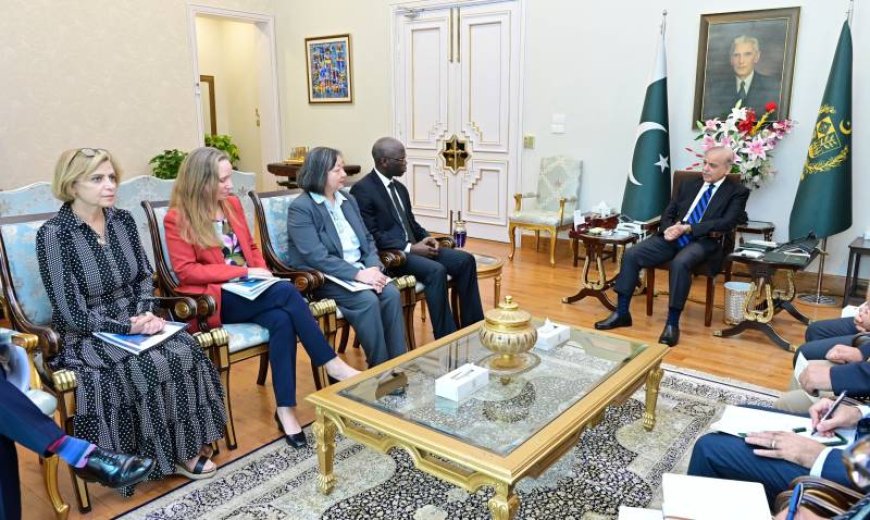PM Shehbaz, World Bank Launch $20B 10-Year Economic Partnership
PM Shehbaz and World Bank VP unveil $20B 10-year Country Partnership Framework to boost Pakistan's economy and reforms.

Prime Minister Shehbaz Sharif and World Bank Vice President Martin Raiser have vowed to strengthen long-term economic cooperation through a newly launched Country Partnership Framework (CPF), marking a new chapter in Pakistan’s development strategy. This 10-year roadmap, worth approximately $20 billion, is set to begin in FY 2026 and will focus on major sectors such as clean energy, education, child nutrition, climate resilience, and critical reforms in the energy and fiscal space. The agreement reflects the World Bank’s confidence in Pakistan’s economic recovery efforts and the government’s commitment to sustainable development.
Speaking at the CPF launch ceremony in Islamabad, Prime Minister Shehbaz Sharif welcomed the initiative and described it as a timely and strategic partnership. He stated that the program shows strong international faith in Pakistan's future and aligns well with the government’s broader “Uraan Pakistan” economic transformation vision. The prime minister emphasized the importance of delivery, implementation, and transparency in such large-scale financial frameworks, assuring that Pakistan is fully committed to achieving the agreed development targets.
Over the years, the World Bank has remained one of Pakistan’s largest development partners. From hydropower and water projects to tax digitization and education reform, the bank’s contributions have been significant. The new CPF builds on this foundation and introduces more structured support over a decade. Prime Minister Shehbaz highlighted current reforms already in motion, such as digital customs operations at Karachi Port and expanded automation within the Federal Board of Revenue (FBR), which aim to reduce corruption and increase efficiency.
World Bank Vice President Martin Raiser also spoke during the event, underlining that while a 10-year engagement is rare and ambitious, it is essential for a country like Pakistan facing deep-rooted challenges. He stressed that the CPF’s success depends on sustained reforms, increased private-sector participation, and collaboration between federal and provincial governments. According to Raiser, key pillars of the CPF include generating more and better jobs, tackling learning poverty, investing in green energy, and building institutional resilience to shocks such as climate change.
Najy Benhassine, World Bank Country Director for Pakistan, emphasized that the CPF reflects not only financial commitment but also policy alignment. He pointed out that over 30 million children in Pakistan face learning poverty, and climate-induced disasters like floods continue to affect millions. The CPF aims to provide long-term funding support to fix such structural issues through an integrated national strategy.
This CPF will also focus on improving service delivery, promoting climate-smart agriculture, and enhancing public-private partnerships. It aims to support Pakistan in building fiscal space while investing in inclusive development. This shift from project-based aid to a long-term framework is being seen as a game-changer for development cooperation.
As Pakistan continues to work with international financial institutions including the IMF, this World Bank initiative offers another layer of stability and direction. With multiple international partners aligning behind Pakistan’s structural reform agenda, the CPF comes at a time when global investors and lenders are seeking signs of accountability, policy continuity, and growth potential. The government has promised transparency, measurable progress, and citizen-focused governance under this partnership.
The launch of the Country Partnership Framework is a strong signal to the global development community that Pakistan is ready to reform, restructure, and rebuild with international support. It represents not just a financial milestone, but a shift in mindset—from short-term fixes to sustainable growth strategies that prioritize human development, economic inclusion, and environmental resilience.
For More visit Nationbytes.pk.

 Israr Ahmed
Israr Ahmed